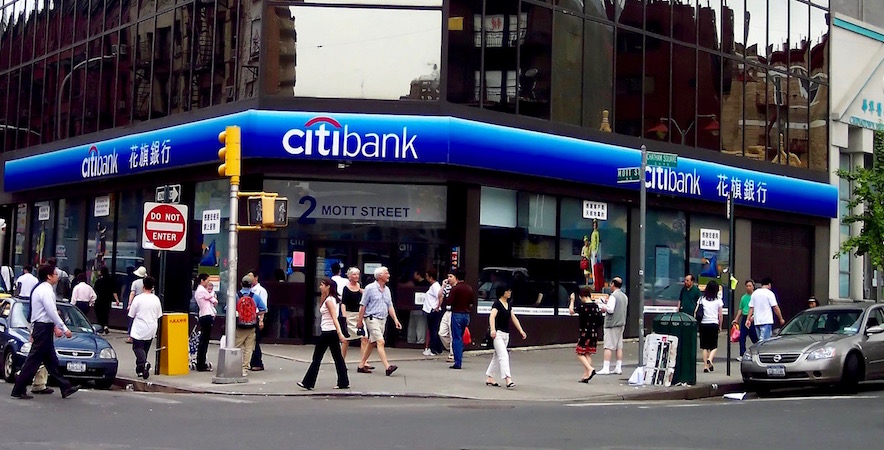
OVERVIEW
NEW WORDS
[responsivevoice voice=”US English Male” buttontext=”Play Audio”]
Nouns.
- ATM (automated teller machine) an unattended electronic machine in a public place, connected to a data system and related equipment and activated by a bank customer to obtain cash withdrawals and other banking services.
- bank (plural: banks) a business establishment in which money is kept for saving or commercial purposes or is invested, supplied for loans, or exchanged.
- bank account (plural: accounts) funds deposited in a bank that are credited to and subject to withdrawal by the depositor.
- bank balance (plural: balances) the amount of money held in a bank account at a given moment.
- bank charge (plural: charges) fees charged by a bank to its customers.
- bank statement (plural: statements) an official summary of financial transactions occurring within a given period for each bank account held by a person or business with a financial institution.
- bounced check (plural: checks) a check from which funds are not transferred because there are insufficient funds in the payer’s account.
- branch (plural: branches) a physical location of a banking corporation.
- check (plural: checks) a written form ordering the payment of money; drawn by one person or bank on another.
- checkbook (plural: checkbooks) a book containing blank checks issued by a bank.
- checking account (plural: accounts) a bank account in which checks may be written against amounts on deposit.
- coin (plural: coins) a small piece of metal, usually flat and circular, authorized by a government for use as money.
- collateral security pledged for the repayment of a loan.
- credit card (plural: cards) a plastic card having a magnetic strip, issued by a bank or business authorizing the holder to buy goods or services on credit.
- debit card (plural: cards) a bankcard used to make an electronic withdrawal from funds on deposit in a bank, as in purchasing goods or obtaining cash advances.
- exchange rate (plural: rates) the rate at which the currency unit of one country may be exchanged for that of another.
- foreign exchange the system by which one currency is exchanged for another; enables international transactions to take place.
- insurance a practice or arrangement by which a company or government agency provides a guarantee of compensation for specified loss, damage, illness, or death in return for payment of a premium.
- interest a charge for a loan, usually a percentage of the amount loaned.
- loan (plural: loans) a sum of money that is lent, usually with an interest fee.
- NSF ( plural: not sufficient funds) A checking account is said to have ‘non-sufficient funds’ (NSF), or “insufficient funds” when it lacks the money needed to cover transactions.
- online banking a method of banking in which transactions are conducted electronically via the internet.
- overdraft (plural: overdrafts) a deficit n a bank account caused by drawing more money than the account holds.
- payee (plural: payees) one to whom money is paid.
- safety deposit box (plural: boxes) a fireproof metal strongbox (usually in a bank) for storing valuables.
- savings account (plural: accounts) an account that draws interest at a bank.
- teller (plural: tellers) a person employed in a bank to receive or pay out money over the counter.
- transaction (plural: transactions) the act of obtaining and paying for an item or service.
- traveler’s check (plural: checks) a check issued in any of various denominations by a bank, travel agency, etc., that is signed by the purchaser upon purchase and again when being cashed or used.
Verbs.
- to bounce slang for a check that cannot be processed because the account holder has non-sufficient funds (NSF) available for use. Banks return, or “bounce,” these checks.
- to cash a check to exchange for or convert into ready money.
- to default to fail to pay money when it is due.
- to deposit to put (money or a cheque) in a bank or financial account.
- to withdraw to remove money from an account.
[/responsivevoice]
VISUAL VOCABULARY
- Take a look at different currency notes in the United States, Canada, United Kingdom, Ireland, Australia and New Zealand
KEY PHRASES
GRAMMAR TIPS
ONLINE RESOURCES
United States
Canada
United Kingdom
Ireland
Australia
New Zealand

